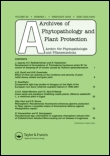
ARCHIVES OF PHYTOPATHOLOGY AND PLANT PROTECTION
Scope & Guideline
Empowering Innovation in Plant Health and Protection
Introduction
Aims and Scopes
- Phytopathology Research:
The journal extensively covers research on plant diseases caused by fungi, bacteria, viruses, and nematodes, emphasizing the identification and characterization of pathogens. - Biological Control Methods:
It highlights studies on biocontrol agents, such as Trichoderma species, and other beneficial microorganisms that can suppress plant pathogens and enhance plant growth. - Chemical Management Strategies:
The journal publishes research on the efficacy of fungicides, insecticides, and other chemical treatments for managing plant diseases and pests. - Integrated Pest Management (IPM):
Research involving holistic approaches combining biological, chemical, and cultural methods for effective pest and disease management is a core focus. - Molecular and Genomic Studies:
The journal encourages the use of molecular techniques for the identification of pathogens, understanding plant-pathogen interactions, and exploring genetic resistance in crops. - Impact on Agriculture and Food Security:
It addresses the implications of plant diseases and pest infestations on agricultural productivity and food security, advocating for sustainable practices.
Trending and Emerging
- Genetic Resistance and Biotechnology:
There is a growing emphasis on genetic resistance in crops and the use of biotechnological approaches, such as CRISPR/Cas9, to develop resistant varieties against various plant diseases. - Sustainable and Eco-friendly Practices:
Research focusing on sustainable agricultural practices, including the use of biopesticides, organic amendments, and eco-friendly formulations, is increasingly prevalent. - Machine Learning and AI Applications:
The integration of machine learning and artificial intelligence for disease detection, diagnosis, and management strategies is emerging as a significant trend in recent studies. - Plant-Microbe Interactions:
There is a heightened interest in understanding the interactions between plants and beneficial microbes, including endophytes and mycorrhizal fungi, and their roles in disease resistance. - Integrated Disease Management (IDM) Approaches:
Research that combines multiple strategies for disease management, including cultural, biological, and chemical methods, is gaining traction and is being increasingly published. - Impact of Climate Change on Plant Diseases:
Studies examining the effects of climate change on the dynamics of plant diseases and pest populations are becoming more prominent, reflecting broader environmental concerns.
Declining or Waning
- Traditional Chemical Control Methods:
There has been a noticeable decline in research focused solely on traditional chemical control methods without integration with biological or sustainable practices, as the emphasis shifts towards more eco-friendly solutions. - General Crop Management Practices:
Studies that discuss broad, non-specific crop management practices unrelated to disease control have become less prominent, as researchers increasingly focus on targeted interventions. - Basic Morphological Studies of Pathogens:
Research that primarily focuses on the morphological characteristics of pathogens without molecular or genetic insights is waning, as the field moves towards more sophisticated identification methods. - Single Pathogen Studies:
The trend of publishing studies that examine the effects of single pathogens on crops is declining in favor of research that addresses multi-pathogen interactions and complex disease scenarios.
Similar Journals

JOURNAL OF NEMATOLOGY
Pioneering Research for Sustainable Crop SolutionsJOURNAL OF NEMATOLOGY, published by the SOC NEMATOLOGISTS, serves as a crucial platform for cutting-edge research in the fields of nematology, agronomy, and crop science. With an ISSN of 0022-300X and an E-ISSN of 2640-396X, this esteemed journal has been an open-access resource since 2016, enabling a wider audience to engage with its findings. The journal is recognized for its high-quality publications, currently holding a Q2 ranking in Agronomy and Crop Science as per the 2023 category quartiles. With a Scopus rank of #171 out of 406 in Agricultural and Biological Sciences, it occupies a vital position in disseminating knowledge crucial for advancing research and practices related to nematodes and their impact on crop productivity. The JOURNAL OF NEMATOLOGY aims to foster collaboration among researchers, professionals, and students, ultimately contributing to the sustainability and productivity of agricultural systems.

PHYTOPROTECTION
Pioneering Solutions for Agricultural ChallengesPHYTOPROTECTION is a distinguished academic journal dedicated to the field of plant protection, published by the Quebec Society for the Protection of Plants. With an ISSN of 0031-9511 and an E-ISSN of 1710-1603, it serves as a platform for researchers, professionals, and students focused on the latest advances in plant protection methodologies, pest management, and sustainable agricultural practices. Although the journal's coverage in Scopus has been discontinued since 2010, its past publications encompass a wealth of valuable research from 1993 to 1994 and from 1996 to 2010, making it a crucial resource for those investigating plant health. The journal firmly positions itself as a fundamental contribution to the advancement of agricultural science, emphasizing research that addresses both contemporary challenges and future trends in the protection of plant resources.
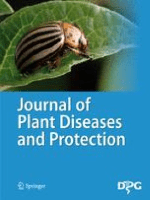
Journal of Plant Diseases and Protection
Championing Knowledge in Agronomy and HorticultureThe Journal of Plant Diseases and Protection, published by SPRINGER HEIDELBERG in Germany, is a premier platform for the dissemination of cutting-edge research in the fields of Agronomy, Horticulture, and Plant Science. With its Q2 ranking in multiple categories as of 2023, this journal stands out in the academic landscape, highlighting its strong performance with a notable Scopus rank of 22nd in Horticulture and placing in the top percentile for Agronomy and Plant Science. The journal spans from 2006 to 2024, making it a valuable resource for researchers, professionals, and students seeking to stay abreast of advancements in the understanding of plant diseases and their protection. The Open Access options further enhance its accessibility, fostering a global exchange of knowledge essential for addressing contemporary agricultural challenges.
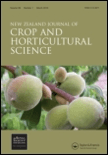
NEW ZEALAND JOURNAL OF CROP AND HORTICULTURAL SCIENCE
Empowering Researchers in Plant Sciences and BeyondThe New Zealand Journal of Crop and Horticultural Science, published by Taylor & Francis Ltd, stands as a key resource in the fields of Agronomy and Horticulture, with a commendable impact factor reflecting its quality and influence in the scientific community. Since its inception in 1989, this journal has been committed to advancing our understanding of crop development and horticultural practices, catering not only to researchers and professionals but also to students eager to delve into the intricacies of plant sciences. With a Q3 ranking in both Agronomy and Crop Science and Horticulture as of 2023, the journal occupies a significant position within the agricultural and biological sciences domain, significantly contributing to the body of knowledge in these fields. The journal features original research, reviews, and technical notes that cover a wide range of topics, ensuring a comprehensive perspective on contemporary and emerging agricultural issues. For individuals interested in accessing cutting-edge research, the journal provides subscription-based access, further enhancing its scholarly contributions.
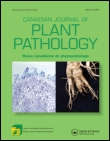
CANADIAN JOURNAL OF PLANT PATHOLOGY
Elevating the understanding of plant diseases for a sustainable future.Canadian Journal of Plant Pathology, published by Taylor & Francis Inc, is a leading academic journal dedicated to advancing the field of plant pathology, with a significant focus on the interplay between plant health and environmental factors. Established in 1979, this journal has established a reputation for high-quality research, currently holding a commendable impact factor within its category. As of 2023, it ranks in the Q2 quartile for both Agronomy and Crop Science as well as Plant Science, highlighting its importance and influence in these domains. With an impressive ranking of 142/516 in Plant Science and 115/406 in Agronomy and Crop Science according to Scopus, the journal is positioned within the 72nd and 71st percentiles, respectively. The Canadian Journal of Plant Pathology serves as a vital platform for researchers, professionals, and students aiming to contribute to the understanding of plant diseases, fostering innovation and development in agricultural practices.
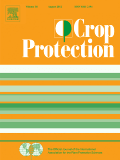
Crop Protection
Pioneering advancements in herbicide development and pest control.Crop Protection is a leading academic journal in the field of Agronomy and Crop Science, published by Elsevier Science Ltd, and recognized for its high impact demonstrated by an impressive Q1 quartile ranking in 2023. With its ISSN 0261-2194 and E-ISSN 1873-6904, this esteemed publication has been a crucial source of research since its inception in 1982, continuing to provide valuable insights and advancements in crop protection strategies through 2024. The journal serves a diverse audience, including researchers, professionals, and students, eager to explore pioneering findings in pest management, herbicide development, and sustainable agricultural practices. While the journal does not offer open access options, its rigorous peer-review process ensures the highest quality of scholarly articles that contribute significantly to the agricultural and biological sciences, maintaining its respected position with a Scopus rank of #63 out of 406 in its category, placing it in the 84th percentile. Engaging with Crop Protection not only enriches knowledge but also promotes innovative solutions for global agricultural challenges.

AUSTRALASIAN PLANT PATHOLOGY
Pioneering research for a sustainable future in plant pathology.Australasian Plant Pathology, published by Springer, is a leading journal in the field of plant science that focuses on the study of plant diseases and their management across the Australasian region. With an established history since 1978, the journal aims to provide a platform for high-quality research that enhances our understanding of plant pathology, prevention strategies, and sustainable management practices. With an impact factor that reflects its significance in the scientific community and its Q3 quartile ranking in 2023 among plant science journals, it serves as a vital resource for researchers, professionals, and students alike. Although it does not have Open Access options, the journal ensures that its content, which spans a wide spectrum of plant pathology topics, remains accessible to a diverse audience globally. With a commitment to advancing knowledge in this crucial area of study, Australasian Plant Pathology continues to play an essential role in addressing the challenges posed by plant diseases in a changing environment.
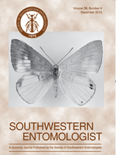
SOUTHWESTERN ENTOMOLOGIST
Unveiling Insights for Sustainable Agricultural PracticesSOUTHWESTERN ENTOMOLOGIST is a pivotal academic journal dedicated to advancing the fields of Agronomy, Ecology, and Insect Science. Published by the SOUTHWESTERN ENTOMOLOGICAL SOC in the United States, this journal plays a crucial role in disseminating vital research findings that address pressing ecological and agricultural challenges. With its ISSN 0147-1724 and E-ISSN 2162-2647, the journal has been publishing comprehensive studies since 1993 and continues to contribute significantly to the knowledge base up to 2024. As a Q4 ranked journal in both Agronomy and Crop Science and Ecology, as well as Insect Science, it provides an inclusive platform for researchers and students to share their insights and foster collaborations. Although it currently does not offer open access options, the content is accessible to academic institutions and professionals, ensuring that significant findings reach a broad audience. Given its niche focus, SOUTHWESTERN ENTOMOLOGIST not only appeals to researchers and students but also to professionals looking to stay updated on the latest trends and developments in entomology and its related fields.

Legume Research
Championing Legume Research for a Resilient TomorrowLegume Research, published by the AGRICULTURAL RESEARCH COMMUNICATION CENTRE in India, is an essential peer-reviewed journal focusing on advancements in the field of agronomy, crop science, soil science, and plant science. With an ISSN of 0250-5371 and operating since 2008, this journal caters to researchers, agricultural professionals, and students interested in the critical role of legumes in sustainable agriculture and food security. It ranks within the third quartile (Q3) in several prominent categories, reflecting its contribution to the agricultural and biological sciences community—ranking #279 in Agronomy and Crop Science, #113 in Soil Science, and #376 in Plant Science based on Scopus metrics. Although not open access, Legume Research remains a vital resource for those seeking to enhance their knowledge and contribute novel research findings in the ever-evolving discipline of legume cultivation and utilization. With a clear objective to disseminate impactful research, this journal significantly contributes to the global understanding of legumes' ecological, economic, and nutritional importance.

Australasian Plant Disease Notes
Uncovering the Secrets of Plant PathologyAustralasian Plant Disease Notes is a vital resource in the fields of Agronomy and Plant Science, published by SPRINGER. Established to address the increasing need for research dissemination on plant diseases in the Australasian region, the journal focuses on the sharing of innovative findings and methodologies pertinent to plant health and pathology. With an ISSN of 1833-928X and E-ISSN 1833-928X, this journal serves as an open platform for researchers to contribute original research, case studies, and reviews that enhance our understanding of plant diseases. Recognized in the academic community, it achieved a Q3 ranking in both Agronomy and Plant Science categories as of 2023, indicating its relevance and significance in the field. The journal aims to support researchers, professionals, and students by providing access to critical insights that can drive advancements in agricultural practices and plant conservation efforts. With a convergence of knowledge spanning from 2009 to 2024, Australasian Plant Disease Notes is poised to make a lasting impact in the study of plant health.